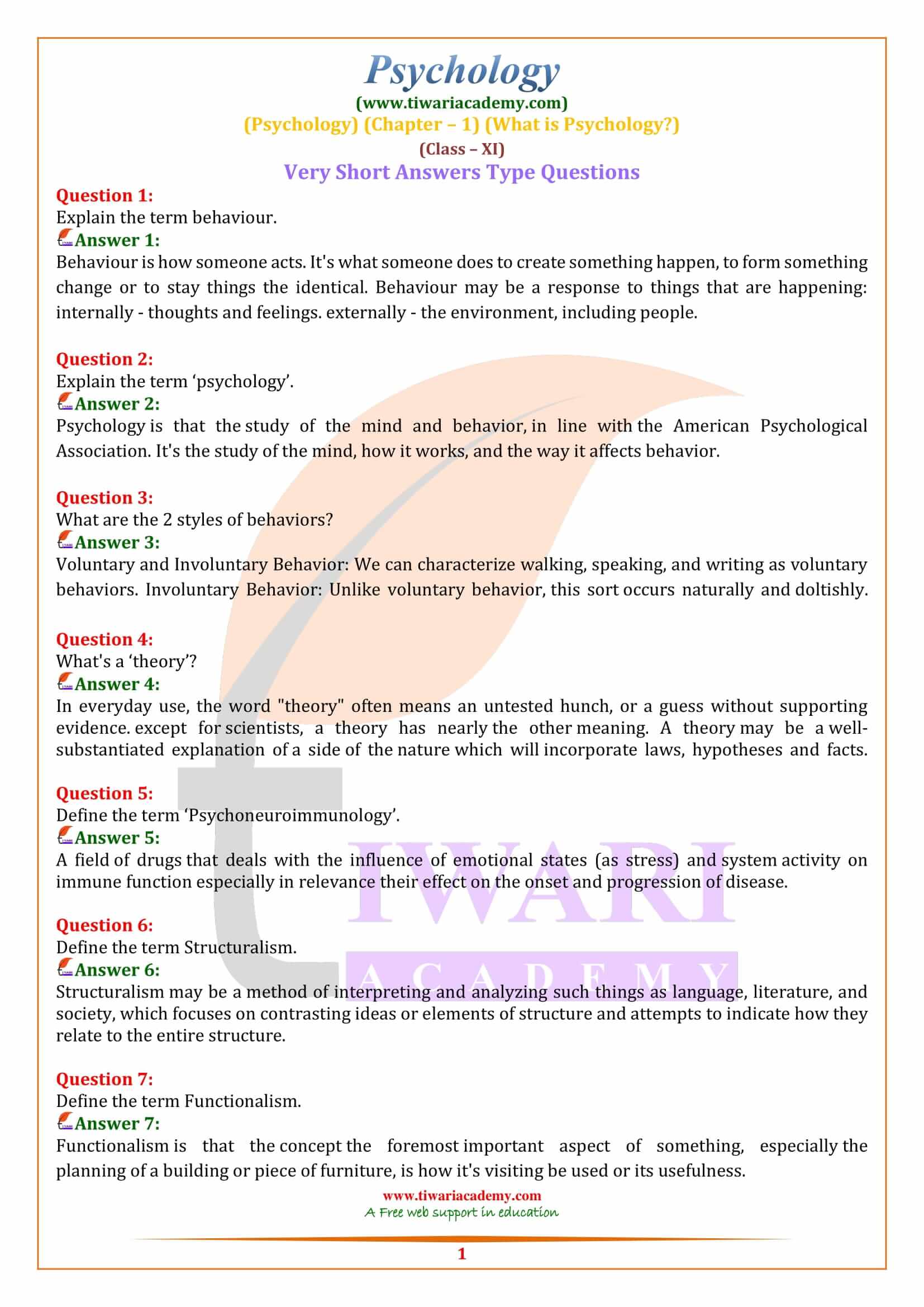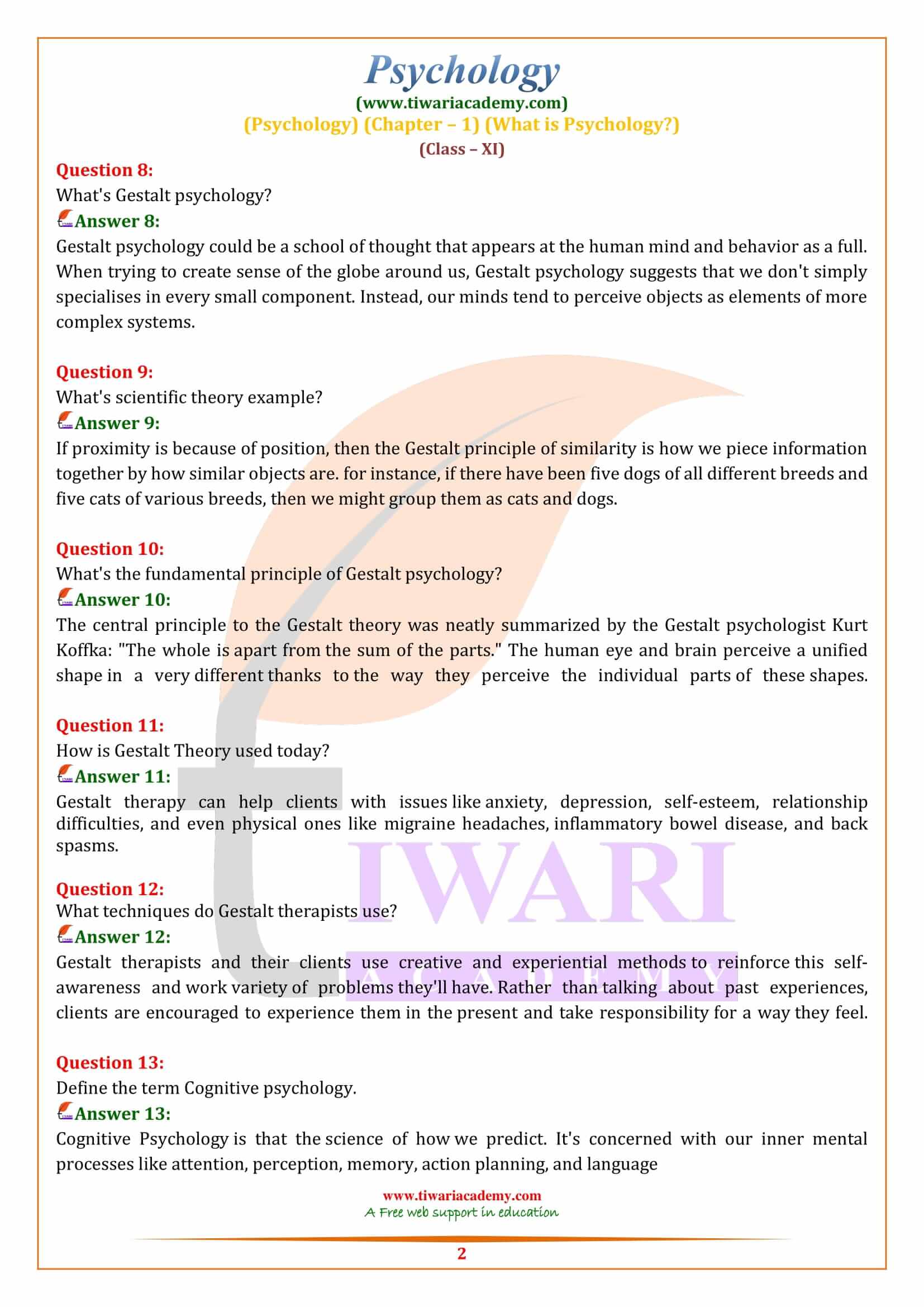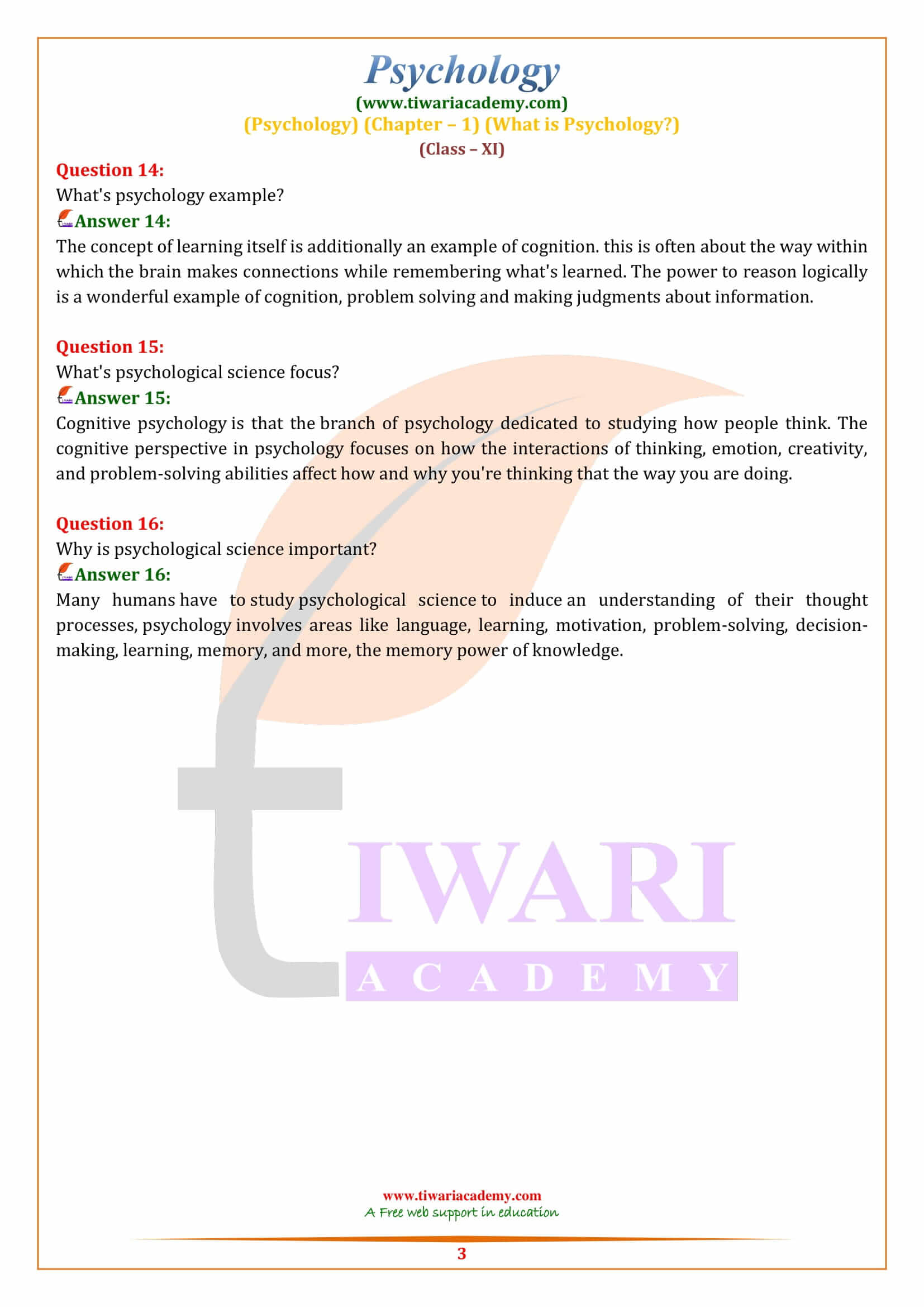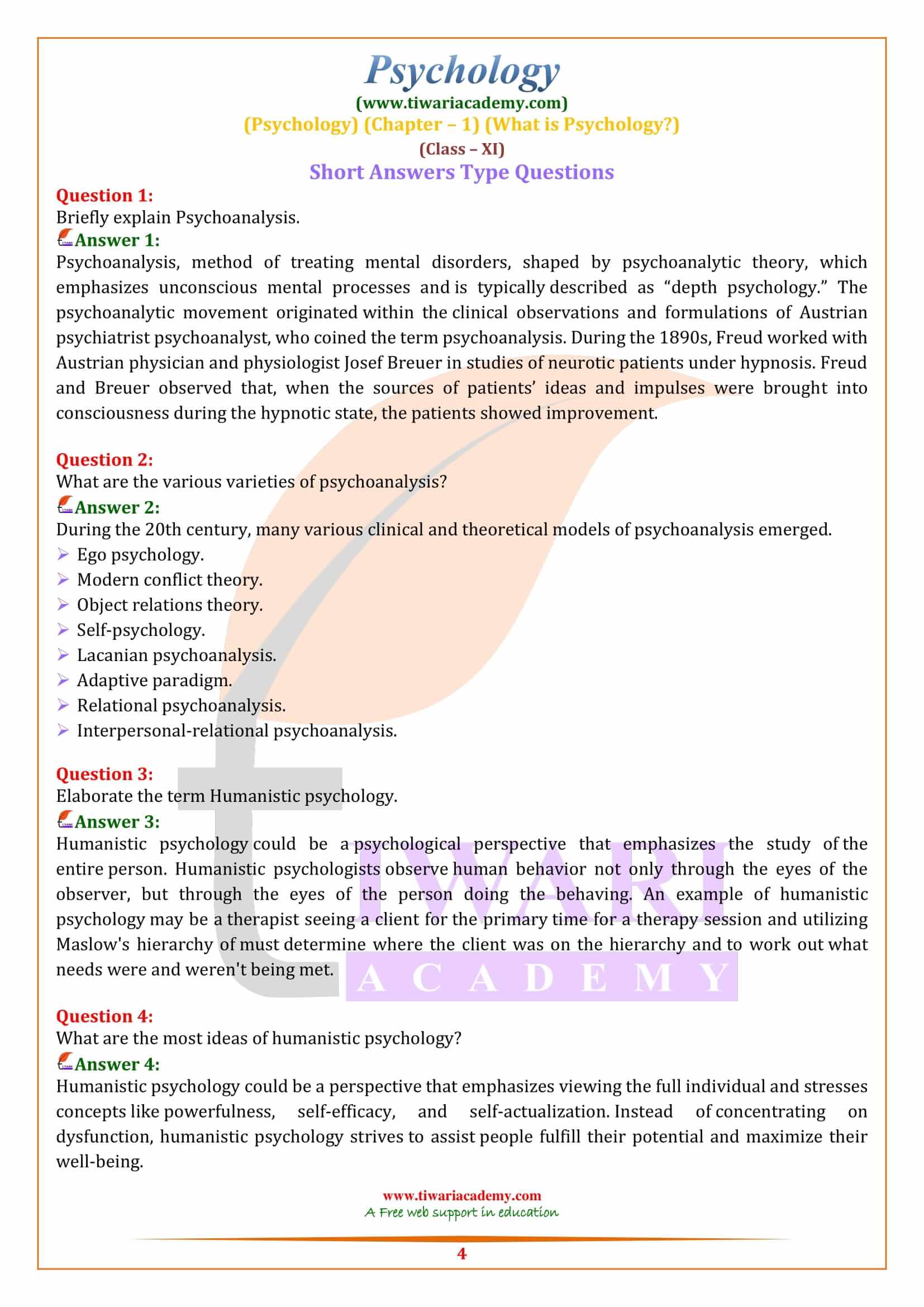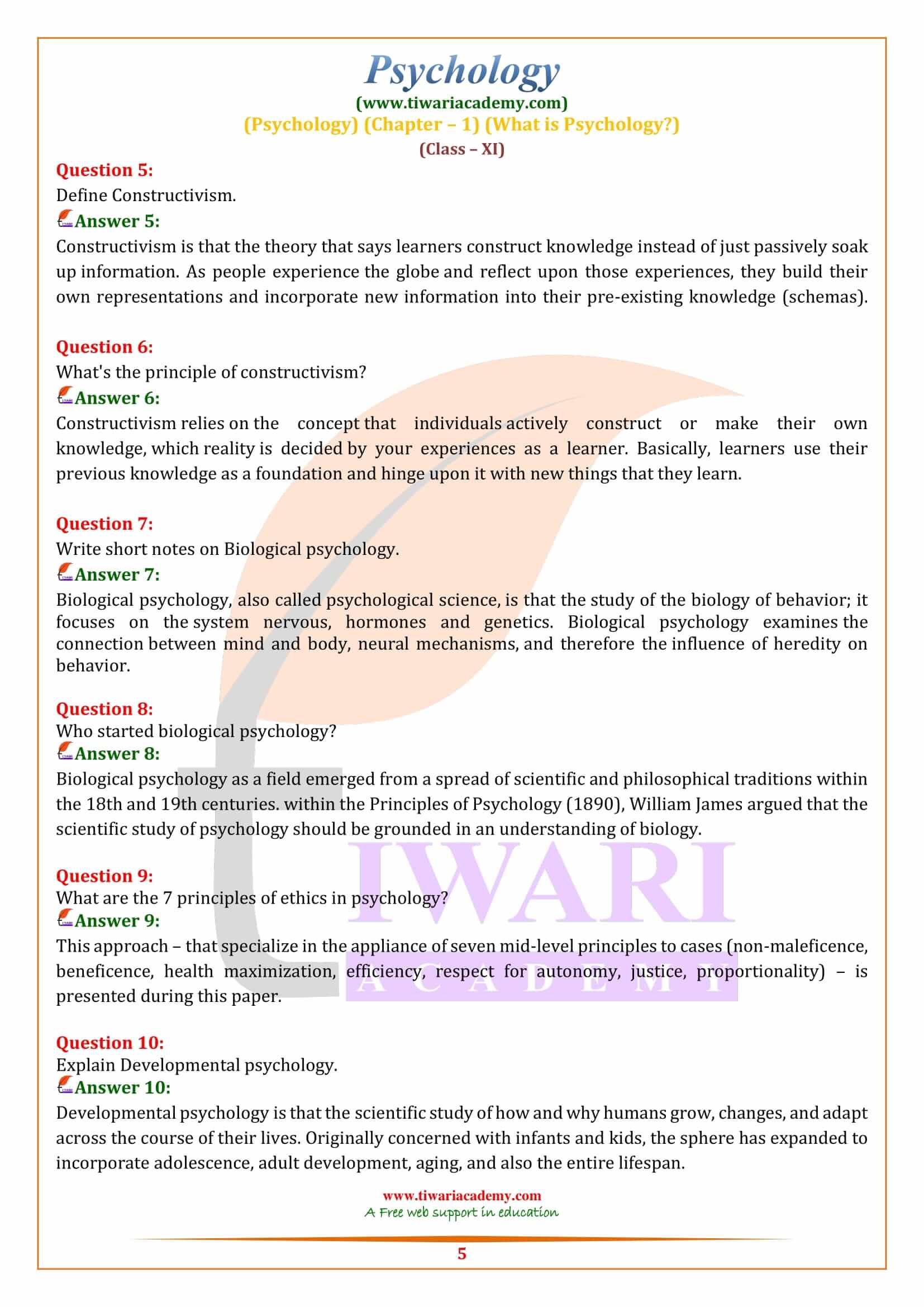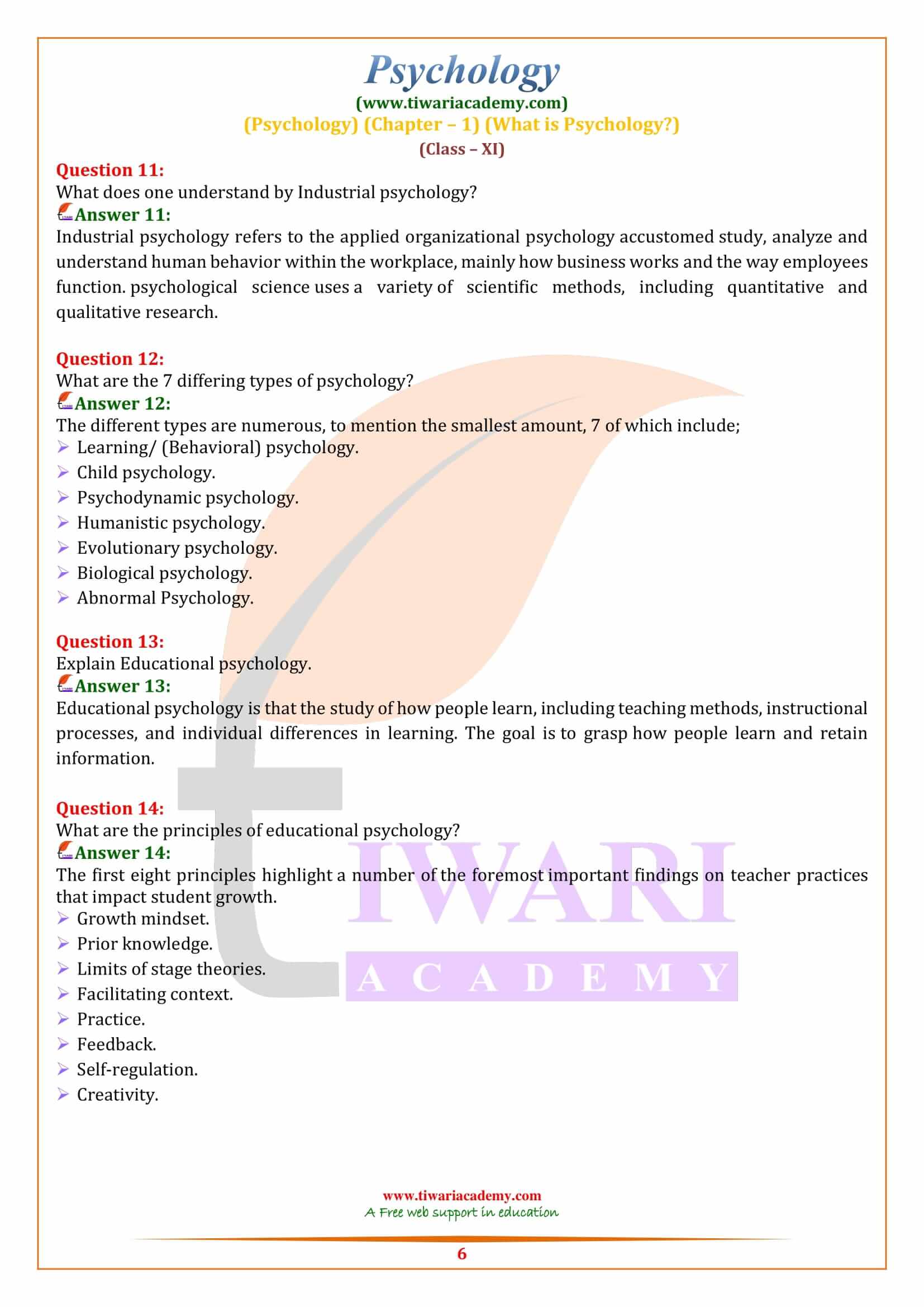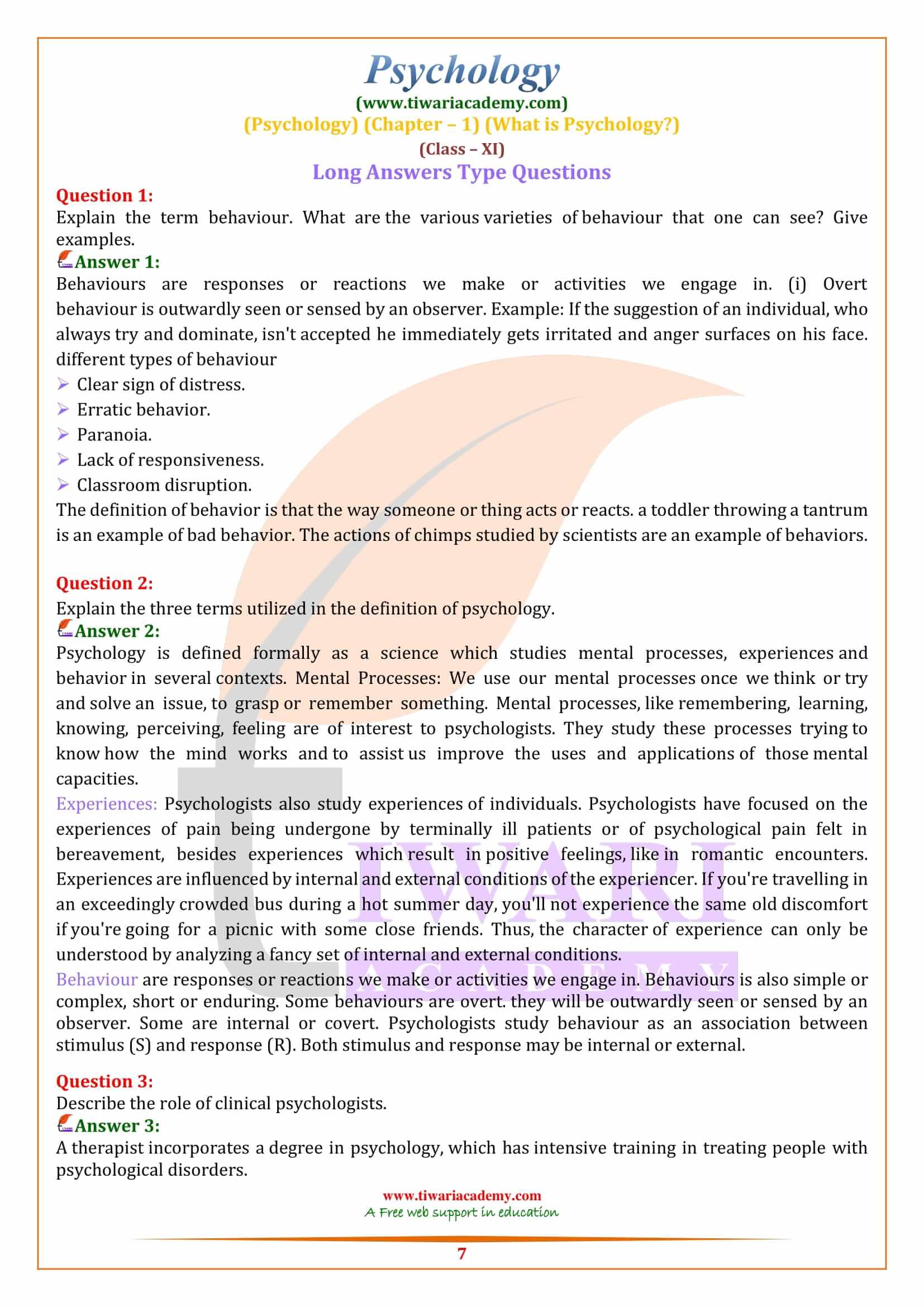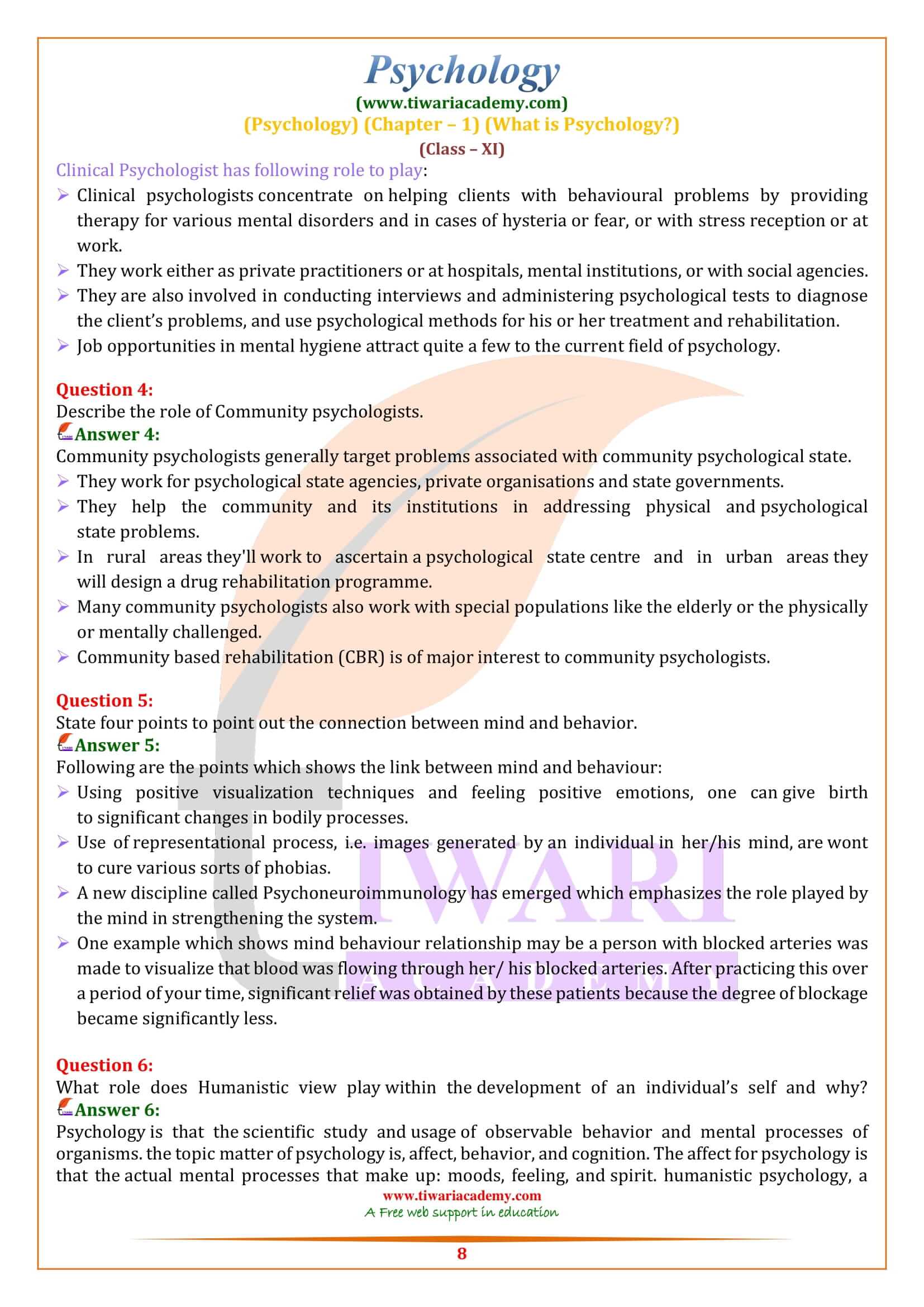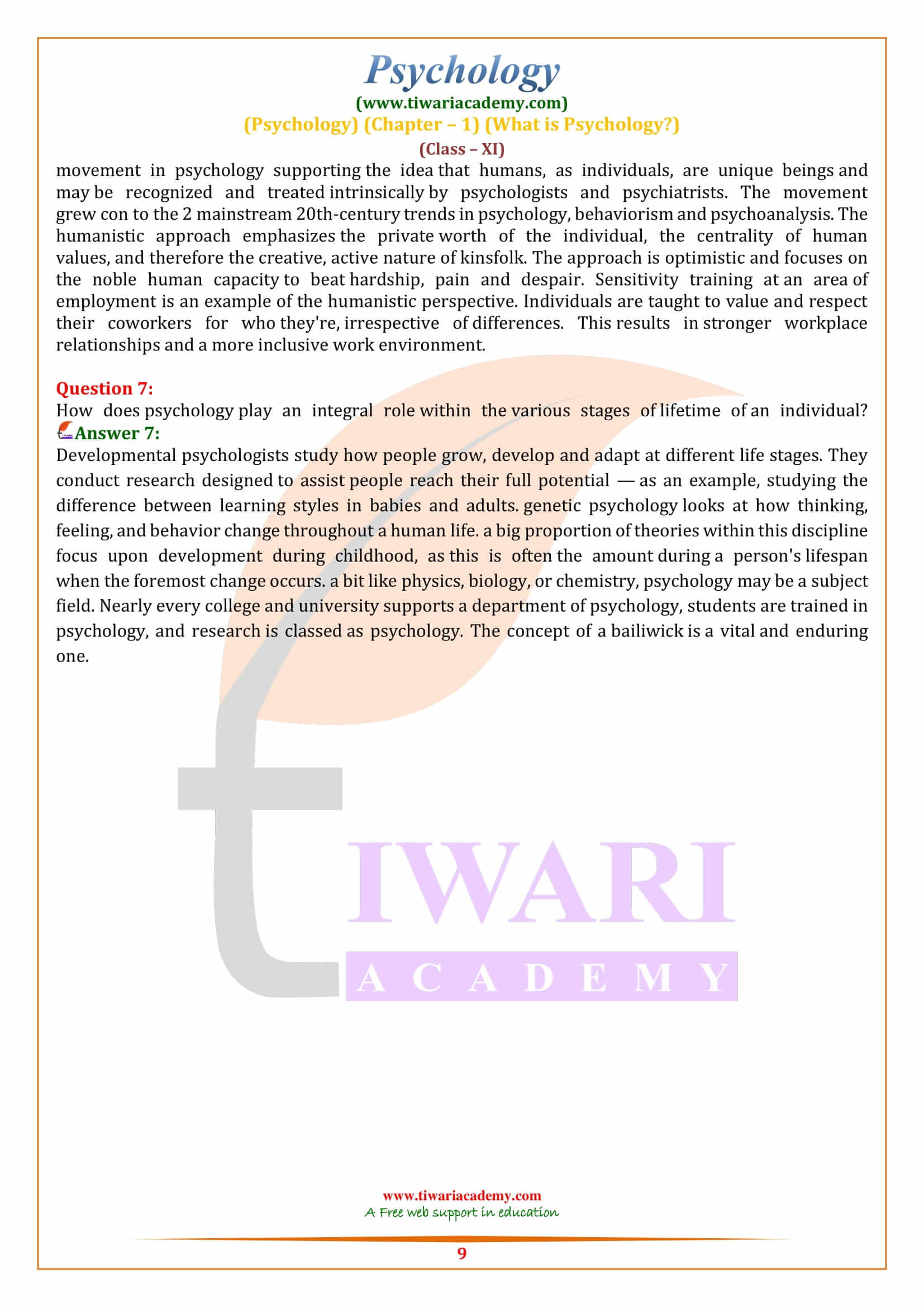Class 11 Psychology Chapter 1 Important Questions What is Psychology designed for CBSE 2025-26. Get here important questions and Extra Question Answers of 11th Psychology chapter 1 along with the NCERT question answers.
Elaborate the term Humanistic psychology.
Humanistic psychology could be a psychological perspective that emphasizes the study of the entire person. Humanistic psychologists observe human behavior not only through the eyes of the observer, but through the eyes of the person doing the behaving. An example of humanistic psychology may be a therapist seeing a client for the primary time for a therapy session and utilizing Maslow’s hierarchy of must determine where the client was on the hierarchy and to work out what needs were and weren’t being met.
What are the most ideas of humanistic psychology?
Humanistic psychology could be a perspective that emphasizes viewing the full individual and stresses concepts like powerfulness, self-efficacy, and self-actualization. instead of concentrating on dysfunction, humanistic psychology strives to assist people fulfill their potential and maximize their well-being.
Define Constructivism.
Constructivism is that the theory that says learners construct knowledge instead of just passively soak up information. As people experience the globe and reflect upon those experiences, they build their own representations and incorporate new information into their pre-existing knowledge (schemas).
What’s the principle of constructivism?
Constructivism relies on the concept that individuals actively construct or make their own knowledge, which reality is decided by your experiences as a learner. Basically, learners use their previous knowledge as a foundation and hinge upon it with new things that they learn.
Write short notes on Biological psychology.
Biological psychology, also called psychological science, is that the study of the biology of behavior; it focuses on the system nervous, hormones and genetics. Biological psychology examines the connection between mind and body, neural mechanisms, and therefore the influence of heredity on behavior.
Who started biological psychology?
Biological psychology as a field emerged from a spread of scientific and philosophical traditions within the 18th and 19th centuries. within the Principles of Psychology (1890), William James argued that the scientific study of psychology should be grounded in an understanding of biology.
What are the 7 principles of ethics in psychology?
This approach – that specialize in the appliance of seven mid-level principles to cases (non-maleficence, beneficence, health maximization, efficiency, respect for autonomy, justice, proportionality) – is presented during this paper.
Explain Developmental psychology.
Developmental psychology is that the scientific study of how and why humans grow, changes, and adapt across the course of their lives. Originally concerned with infants and kids, the sphere has expanded to incorporate adolescence, adult development, aging, and also the entire lifespan.
What does one understand by Industrial psychology?
Industrial psychology refers to the applied organizational psychology accustomed study, analyze and understand human behavior within the workplace, mainly how business works and the way employees function. psychological science uses a variety of scientific methods, including quantitative and qualitative research.
Explain Educational psychology.
Educational psychology is that the study of how people learn, including teaching methods, instructional processes, and individual differences in learning. The goal is to grasp how people learn and retain information.
State four points to point out the connection between mind and behavior.
Following are the points which shows the link between mind and behaviour:
- Using positive visualization techniques and feeling positive emotions, one can give birth to significant changes in bodily processes.
- Use of representational process, i.e. images generated by an individual in her/his mind, are wont to cure various sorts of phobias.
- A new discipline called Psychoneuroimmunology has emerged which emphasizes the role played by the mind in strengthening the system.
- One example which shows mind behaviour relationship may be a person with blocked arteries was made to visualize that blood was flowing through her/ his blocked arteries. After practicing this over a period of your time, significant relief was obtained by these patients because the degree of blockage became significantly less.
What role does Humanistic view play within the development of an individual’s self and why?
Psychology is that the scientific study and usage of observable behavior and mental processes of organisms. the topic matter of psychology is, affect, behavior, and cognition. The affect for psychology is that the actual mental processes that make up: moods, feeling, and spirit. humanistic psychology, a movement in psychology supporting the idea that humans, as individuals, are unique beings and may be recognized and treated intrinsically by psychologists and psychiatrists. The movement grew con to the 2 mainstream 20th-century trends in psychology, behaviorism and psychoanalysis. The humanistic approach emphasizes the private worth of the individual, the centrality of human values, and therefore the creative, active nature of kinsfolk.
The approach is optimistic and focuses on the noble human capacity to beat hardship, pain and despair. Sensitivity training at an area of employment is an example of the humanistic perspective. Individuals are taught to value and respect their coworkers for who they’re, irrespective of differences. This results in stronger workplace relationships and a more inclusive work environment.
